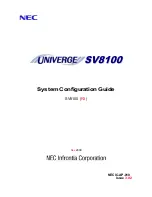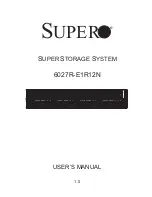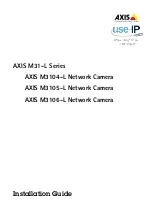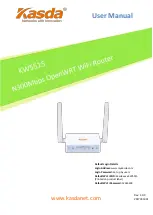
LANCOM
IAP-321-3G
Scope of features: as of LCOS version 8.5x
WLAN
Frequency band 2.4 GHz or 5 GHz
2400- 2483.5 MHz (ISM) or 5150- 5825 MHz (depending on country- specific restrictions)
Data rates 802.11b/g
54 Mbps to IEEE 802.11g (fallback to 48, 36 , 24, 18, 12, 9, 6 Mbps, Automatic Rate Selection) compatible to IEEE 802.11b (11,
5.5, 2, 1 Mbps, Automatic Rate Selection), 802.11 b/g compatibility mode or pure g or pure b
Data rates 802.11a/ h
54 Mbps (fallback to 48, 36 , 24, 18, 12, 9, 6 Mbps, Automatic Rate Selection), fully compatible with TPC (adjustable power
output) and DFS (automatic channel selection, radar detection) according to ETSI EN 301 893 V.1.5.1., EN 302 502
Data rates 802.11n
300 Mbps according to IEEE 802.11n with MSC15 (Fallback to 6,5 Mbps with MSC0)
Range (outdoor / P2P)
More than 20 km in 5 GHz. See our LANCOM Antenna Distance Calculator under www.lancom.de
Output power at radio module, 5 GHz
802.11a/h: 17 dBm @ 6 bis 24 Mbit/s, 15 dBm @ 36 Mbit/s, 13 dBm @ 54 Mbit/s,
802.11n: 17 dBm @ 6,5/13/30 Mbit/s (MCS0/8), 13 dBm @ 65/130/300 Mbit/s (MCS7/15)
Minimum transmission power
Transmission power reduction in software in 1 dB steps to min. 0.5 dBm
Receiver sensitivity 2.4 GHz
802.11b: - 89 dBm @ 11 Mbit/s, - 94 dBm @ 1 Mbit/s
802.11g: - 93 dBm @ 6 Mbit/s, - 79 dBm @ 54 Mbit/s
802.11n: - 93 dBm @6,5 Mbit/s (MCS0/8), - 75 dBm @ 65 Mbit/s (MCS7/15)
Receiver sensitivity 5 GHz
802.11a/h: - 93 dBm @ 6Mbit/s, - 75 dBm @ 54 Mbit/s
802.11n: - 93 dBm @ 6,5 Mbit/s (MCS0/8), - 71 dBm @ 65 Mbit/s (MCS7/15)
Radio channels 2.4 GHz
Up to 13 channels, max. 3 non- overlapping (2.4 GHz band)
Radio channels 5 GHz
Up to 26 non- overlapping channels (available channels and further obligations such as automatic DFS dynamic channel
selection depending on national regulation)
Roaming
Seamless handover between radio cells, IAPP support with optional restriction to an ARF context, IEEE 802.11d support
WPA2 fast roaming
Pre- authentication and PMK caching for fast roaming
Fast client roaming
With background scanning, moving LANCOM 'client mode' access points pre- authenticate to alternative access points which
offer a better signal before Roaming fails
VLAN
VLAN ID definable per interface, WLAN SSID, point- to- point connection and routing context (4094 IDs) IEEE 802.1q
Dynamic VLAN assignment
Dynamic VLAN assignment for target user groups based on MAC addresses, BSSID or SSID by means of external RADIUS server.
Q- in- Q tagging
Support of layered 802.1q VLANs (double tagging)
Multi- SSID
Simultaneous use of up to 8 independent WLAN networks per WLAN interface
IGMP snooping
Support for Internet Group Management Protocol (IGMP) in the WLAN bridge for WLAN SSIDs and LAN interfaces for specific
switching of multicast packets (devices with integrated WLAN only). Automated detection of multicast groups. Configurable
action for multicast packets without registration. Configuration of static multicast group members per VLAN ID. Configuration
of query simulation for multicast membership per VLAN ID
Security
IEEE 802.11i / WPA2 with passphrase or 802.1x and hardware- accelerated AES, closed network, WEP64, WEP128, WEP152,
user authentication, 802.1x /EAP, LEPS, WPA1/TKIP
RADIUS server
Integrated RADIUS server for MAC address list management
EAP server
Integrated EAP server for authentication of 802.1x clients via EAP- TLS, EAP- TTLS, PEAP, MSCHAP or MSCHAPv2
Quality of Service
Prioritization according to Wireless Multimedia Extensions (WME, subset of IEEE 802.11e)
U- APSD/WMM Power Save
Extension of power saving according to IEEE 802.11e by Unscheduled Automatic Power Save Delivery (equivalent to WMM Power
Save). U- APSD supports the automatic switch of clients to a doze mode. Increasmed battery lifetime for telephone calls over
VoWLAN (Voice over WLAN)
Bandwidth limitation
Maximum transmit and receive rates and an individual VLAN ID can be assigned to each WLAN client (MAC address)
Broken link detection
If the link of a chosen LAN interface breaks down, a WLAN module can be deactivated to let the associated clients search for a
new base station
Background scanning
Detection of rogue AP's and the channel information for all WLAN channels during normal AP operation.
The Background Scan Time Interval defines the time slots in which an AP or Router searches for a foreign WLAN network in its
vicinity. The time interval can be specified in either milliseconds, seconds, minutes, hours or days
Client detection
Rogue WLAN client detection based on probe requests
802.1x supplicant
Authentication of an access point in WLAN client mode at another access point via 802.1x (EAP- TLS, EAP- TTLS and PEAP)
Layer- 3 Tunneling
Layer- 3 Tunneling in conformity with the CAPWAP standard allows the bridging of WLANs per SSID to a separate IP subnet.
Layer- 2 packets are encapsulated in Layer- 3 tunnels and transported to a LANCOM WLAN controller. By doing this the access
point is independent of the present infrastructure of the network. Possible applications are roaming without changing the IP
address and compounding SSIDs without using VLANs.




























